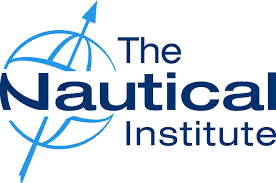January 2015

Nautical Institute Alert! Issue No. 37
Practice makes perfect
Realistic safety drills are the perfect training for survival in an unexpected emergency. Done diligently and regularly, they can save lives and help seafarers to survive whatever the unexpected may throw at them.
Nobody really enjoys emergency drills, and for those which are really worthwhile – those which are unexpected and inconvenient – there is probably an element of active dislike. But as the latest issue of the International Maritime Human Element Bulletin Alert! explains, diligent drills which drove the crew half mad ultimately saved their lives when they had to abandon ship in a hurry.
Alert! No 37 focuses on surviving the unexpected, the emergencies which raise their ugly heads in so many different guises, and examines how resources, training and procedures can help people to do the correct things almost instinctively when the chips are down.
Can new technology help in this? Alert! suggests that gaming technology, which has advanced in leaps and bounds in recent years, can help people learn from incidents without actually having to experience them. And because gaming technology means drills can be repeated constantly, seafarers can really rehearse their reactions to all manner of emergencies.
The bulletin also provides an insight into Seahealth, a Danish initiative which helps individuals get through a crisis at sea and survive traumatic events which may, in the worst case, affect the mental health of an individual. Such traumas might be more common than some think.
Other articles include a new approach to enclosed space entry, which continues to claim too many victims, in which technology is harnessed to help people make the correct decisions in what can be life or death choices. The latest thinking on maritime security is also covered, showing how prevention, preparation and practice – the three Ps – can enhance survival chances, whatever circumstances and the unexpected may produce.
The centrefold summarises the principles of survival in pictorial form – emphasising the importance of training and drills and the need for a holistic approach to safety and survival. Fire-fighting, lifesaving, personal survival, medical and first aid training, the importance of communications and search and rescue, crisis management and security training are all elements of what makes a well-prepared seafarer and an entire crew. And not for the first time, the importance of learning from other people’s mistakes and near-misses is underlined.
Ends
Notes to editors
The Alert! Project – launched in October 2003 – is a campaign to improve the awareness of the human element in the maritime industry. This is a Nautical Institute project, sponsored by the Lloyd’s Register Foundation.
Further information about the human element awareness initiative, and electronic copies of Alert! can be found at www.he-alert.org.
David Squire, FNI FCMI
The Editor
Alert!
The Nautical Institute
202 Lambeth Road
London SE1 7LQ
United Kingdom
The Nautical Institute is the international representative body for maritime professionals and others with an interest in nautical matters. It provides a wide range of services to enhance the professional standing and knowledge of members who are drawn from all sectors of the maritime world.
Founded in 1972, it is a thriving international professional body, with over 40 branches worldwide and some 7,000 members in more than 110 countries.
Lloyd’s Register Foundation helps to protect life and property by supporting engineering-related education, public engagement and the application of research.
Lloyd’s Register Foundation (Reg. No. 1145988) is a Charity registered in England and Wales, and owner of the Lloyd’s Register Group. Registered Office: 71 Fenchurch Street, London, EC3M 4BS, United Kingdom.
Tel: +44 (0)20 7709 9166
Download PDF
For further information:
Amy Shelton
ECDIS Ltd
Ground Floor
Atlantic 3600 Building Parkway
Solent Business Park
Whiteley
Fareham
PO15 7AN
United Kingdom
Tel: +44 (0) 1489 559677
Email: [email protected]
Web: www.ecdis.org
